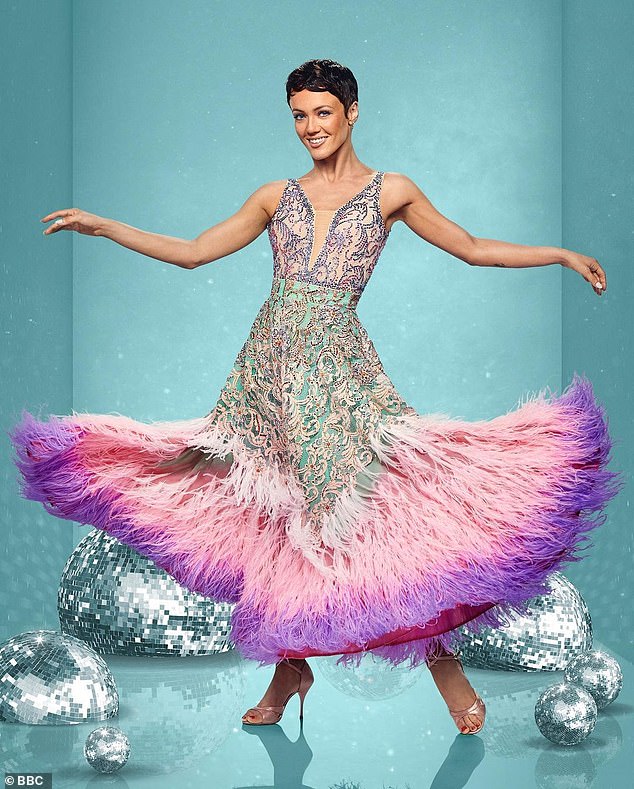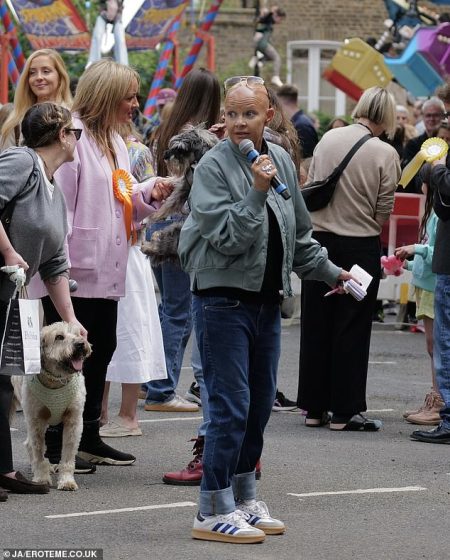Animal rights charity PETA has criticized the use of real feathers in this year’s Strictly Come Dancing costumes, calling it ‘cruel and gory’ and urging show bosses to use alternative materials. The charity highlighted the extreme cruelty involved in obtaining feathers from birds, including the common practice of live plucking, which causes immense pain and sometimes fatal injuries. Fashion designers such as Stella McCartney have banned the use of feathers and made a commitment to go Feather-Free, prompting PETA to call on Strictly Come Dancing to follow suit and eliminate feathers from their costumes. The Vice President of Corporate Projects at PETA, Yvonne Taylor, wrote a letter to show bosses expressing concern over the use of feathers and emphasizing that they have no place on the dancefloor.
In addition to the controversy surrounding the use of feathers, Strictly Come Dancing has also faced accusations of favoritism towards celebrity pairing Wynne Evans and Katya Jones. The duo has consistently received high scores ranging from 30 to 34, with only their first week scoring slightly lower at 26. Despite the judges’ praise and positive feedback on their performances, some viewers have expressed skepticism and criticism, suggesting that Wynne and Katya have been overmarked. Fans took to social media to voice their frustrations, with some questioning if there was a contractual agreement or favoritism involved in the scoring process. The ongoing debate over the fairness and transparency of the judging on the show has sparked controversy among fans and viewers.
The issue of animal rights and ethical considerations in the entertainment industry has gained increased attention in recent years, prompting organizations like PETA to advocate for the use of cruelty-free materials in costumes and productions. The spotlight on feather use in Strictly Come Dancing costumes serves as a reminder of the importance of ethical sourcing and sustainability in the fashion and entertainment industries. By raising awareness and calling for change, animal rights activists hope to encourage a shift towards more responsible practices and greater accountability in the treatment of animals. The ongoing dialogue around the issue reflects a growing societal concern for the welfare of animals and the need for ethical considerations in all aspects of production and consumption.
The controversy surrounding the use of feathers in Strictly Come Dancing costumes has put the show in the spotlight and prompted discussions about the ethical implications of using animal products in entertainment. As viewers and fans voice their concerns over the treatment of animals and the need for transparency in the fashion industry, show bosses may face increasing pressure to reconsider their costume choices and adopt more ethical practices. The issue of favoritism in scoring and judging on the show has also raised questions about fairness and integrity, with viewers demanding greater accountability and transparency in the evaluation of performances. As the debate continues, it remains to be seen how Strictly Come Dancing will address these concerns and respond to calls for change.
The call for Strictly Come Dancing to eliminate feathers from their costumes reflects a broader shift towards sustainable and cruelty-free practices in the fashion and entertainment industries. As more consumers become conscious of the ethical implications of their purchasing decisions, there is a growing demand for transparency and accountability from brands and productions. By aligning with the values of animal rights organizations and adopting cruelty-free practices, shows like Strictly Come Dancing can demonstrate their commitment to responsible sourcing and ethical production. The controversy surrounding the use of feathers serves as a reminder of the importance of considering the welfare of animals in all aspects of production and consumption, and highlights the need for greater awareness and advocacy for ethical practices.
Overall, the criticism faced by Strictly Come Dancing for its use of real feathers in costumes and the accusations of favoritism towards certain celebrity pairings highlight the ongoing debate surrounding ethical considerations in the entertainment industry. As organizations like PETA advocate for cruelty-free practices and transparency in production, viewers and fans are increasingly vocal about their concerns over animal welfare and fair judging practices. The show’s response to these criticisms and the actions it takes to address the issues raised will determine its reputation and standing in the eyes of the public. By engaging in a dialogue about ethical sourcing, sustainability, and fairness, Strictly Come Dancing can demonstrate its commitment to responsible practices and ethical principles, setting a positive example for others in the industry to follow.















